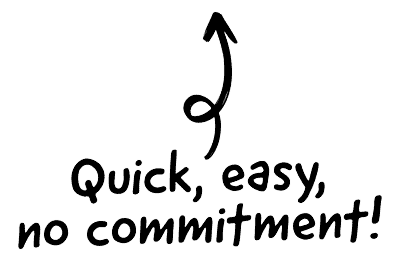If you’re a business owner in the manufacturing industry, then you’ll know that payroll management is a vital part of your operations. But what are the key issues to consider when it comes to payroll for manufacturers? And is it better to run a payroll system in-house, or outsource to a specialist provider?

In this guide, we’ll answer these questions and more, so you can make the best decision for your business. We’ll also take a look at some of the best software and services available for manufacturing companies in the UK.
What are the main payroll issues for the manufacturing industry?
There are a few key issues to consider when it comes to payroll for manufacturing businesses. Firstly, you need to make sure that you’re compliant with all the relevant employment legislation. This includes things like the National Minimum Wage and the Working Time Regulations.
 Cutting edge payroll software
Cutting edge payroll software
- Powerful and easy to use
- HMRC & RTI compliant
- Used by payroll pros
 The CRM platform to grow your business
The CRM platform to grow your business
- Great for entrepreneurs
- Powerful data analytics
- Manage sales and data
 Powerful web builder and advanced business tools
Powerful web builder and advanced business tools
- Great for startups
- Powerful web page builder
- E-commerce available
 Supercharged content planning
Supercharged content planning
- Great for marketing
- Better than lists or sheets
- Manage social media
 Create a new website in 10 minutes. Easy.
Create a new website in 10 minutes. Easy.
- Launch your website fast
- Powerful data intuitive
- No coding skills needed
Secondly, you need to ensure that your employees are paid accurately and on time. This is important for both morale and legal reasons.
You also need to make sure that you have a system in place for dealing with absences and holiday pay.
Dealing with irregular shift patterns
One of the unique challenges for payroll in the manufacturing industry is dealing with irregular shift patterns. This can make it difficult to calculate things like overtime and holiday pay accurately.
It’s important to have a system in place that can deal with these complexities, so you don’t end up overpaying or underpaying your employees.
Attendance tracking and clocking in systems
Another issue to consider is attendance tracking. This is particularly important in the manufacturing industry, as employees often work shifts that start and finish at different times.
It’s important to have a system in place that can track employee hours accurately. This could be something as simple as a clocking in system, or it could be a more sophisticated time and attendance system.
How much should a manufacturing business spend on processing their payroll?
This will depend on the size of your business and the number of employees you have. Generally speaking, you should budget for around £20 per employee per month.
Can a manufacturing company just run a payroll management system in-house?
Yes, it is possible for a manufacturing business to run its own payroll management system in-house. However, there are a few things to consider before taking this approach.
You need to make sure that you have the necessary expertise in-house. This includes things like knowledge of employment law and payroll accounting.
Also, you need to consider whether you have the time and resources to dedicate to running a payroll system. If not, then it may be better to outsource this function to a specialist provider.
Pros and cons of outsourcing payroll for manufacturing
There are both pros and cons to outsourcing payroll for manufacturing businesses.
The main advantage of outsourcing is that it can save you time and money. This is because you won’t need to invest in training staff or buying payroll software. It can also free up your time so you can focus on other aspects of running your business.
The main disadvantage of outsourcing is that it can be more expensive than running a payroll system in-house. This is because you’ll need to pay for the service on a monthly basis. You also won’t have as much control over the process, which could be an issue if you have specific requirements.
Pros and cons of running manufacturing payroll in-house
There are both pros and cons to running manufacturing payroll in-house.
The main advantage of this approach is that it gives you more control over the process. This can be important if you have specific requirements or need to comply with certain regulations.
The main disadvantage of running payroll in-house is that it can be time-consuming and expensive. This is because you’ll need to invest in training staff and buying payroll software. You also won’t have as much flexibility when it comes to making changes to the system.
Software or outsourced services – what’s the best solution for manufacturing businesses?
There is no one-size-fits-all answer to this question. It depends on the specific needs of your business. If you have the expertise and resources in-house to run a payroll system, then this may be the best option for you.
However, if you don’t have the time or resources to dedicate to this function, then it may be better to outsource to a specialist provider.
Best manufacturing payroll software
There is a range of different payroll software available for manufacturing businesses. It’s important to choose a system that is compliant with all the relevant employment legislation.
It should also be easy to use and have a range of features to suit your specific needs.
Some of the best payroll software for manufacturing businesses includes Xero, FreeAgent, and Sage 50 cloud Payroll.
- Xero is a cloud-based accounting software that is popular with small businesses and entrepreneurs. It is easy to use and has a range of features that can help you manage your finances effectively. Xero also integrates with a number of other apps, which makes it a great choice for businesses that want to automate their accounting process.
- FreeAgent is the perfect online accounting software for freelancers and small businesses. It’s easy to use and helps you stay on top of your finances, so you can focus on your business.
- Sage 50 cloud payroll is a comprehensive, yet easy to use, cloud-based solution for managing your manufacturing company’s payroll. It offers a wide range of features and functionality that can help you streamline your payroll processes and improve efficiency.
Questions to ask your potential software provider
When you’re considering different payroll software for your manufacturing business, it’s important to ask the right questions. This will help you determine whether the system is right for you and if it will meet your specific needs.
Some of the key questions you should ask include:
- How easy is the software to use?
- What training and support is available?
- How often is the software updated?
- Is the software compliant with all relevant employment legislation?
- What features does the software have?
- Can the software be customized to meet my specific needs?
- Does it offer a range of features?
- How much does it cost?
- Is there a free trial available?
Best payroll services for manufacturing
There are a number of specialist payroll providers that offer services specifically for manufacturing businesses. These providers can help with things like compliance, employee payments, and absence management.
Some of the best payroll services for manufacturing businesses include BrightPay, Earnie, and Cascade HR.
- BrightPay is a leading UK payroll service for small businesses. It’s easy to use and helps you take care of everything from PAYE and NI to statutory sick pay and maternity/paternity leave. BrightPay also makes it easy to file your RTI submissions, meaning you’re always compliant with HMRC’s regulations.
- Earnie is a cloud-based payroll software that helps manufacturing businesses manage their employee payments and compliance. It offers a wide range of features and functionality, including payslip creation, automated tax calculations, and leave management. Earnie also integrates with a number of other apps, which makes it a great choice for businesses that want to automate their payroll process.
- Cascade HR is a cloud-based human resources software that helps businesses manage employee files, onboarding processes, and more. With Cascade HR, businesses can easily stay compliant with payroll and employment regulations. Additionally, Cascade HR offers a variety of features such as time and attendance tracking, performance reviews, and more.
Questions to ask your potential outsourced provider
When you’re considering outsourcing payroll for your manufacturing business, there are a few key questions you should ask your potential provider.
- What experience do they have in working with businesses in the manufacturing industry?
- Do they have a good understanding of employment law and payroll accounting?
- What systems and processes do they use to manage payroll?
- How do they handle data security and privacy?
- What are their fees and charges?
- What level of customer support do they offer?
- Do they have any references from other manufacturing businesses?
Taking the time to ask these questions will help you to find a provider that is a good fit for your business.
FAQ
Below are some frequently asked questions about payroll for manufacturing businesses.
Yes, the size of your business does matter when it comes to choosing payroll software, because it can impact the type of software that’s best for you. However, there are a number of solutions on the market that cater to businesses of all sizes.
Payroll software is a type of application that you can use to manage your employee payments and compliance. A payroll service is a company that provides outsourced payroll services to businesses.
There are a number of benefits to using payroll software, including the ability to automate payroll processes, improve compliance, and reduce errors.
Outsourcing payroll can help to save you time and money. It can also help to improve compliance and data security.
Some of the best payroll software for manufacturing businesses include BrightPay, Earnie, and Cascade HR.
Some of the best payroll services for manufacturing businesses include PayChex and ADP.
Outsourcing payroll can cost as little as £20 per month.
The most common payroll issues for manufacturing businesses include compliance, data security, and errors.
There are a number of ways to improve your payroll process, including automating payroll processes, using payroll software, and outsourcing payroll.

